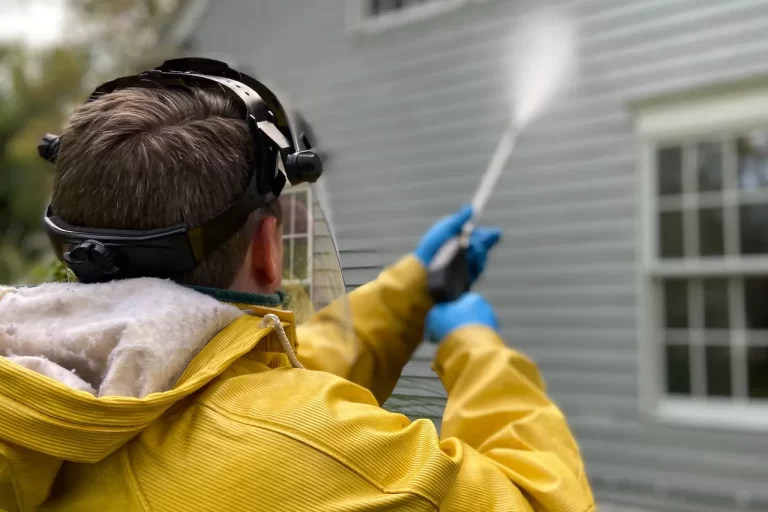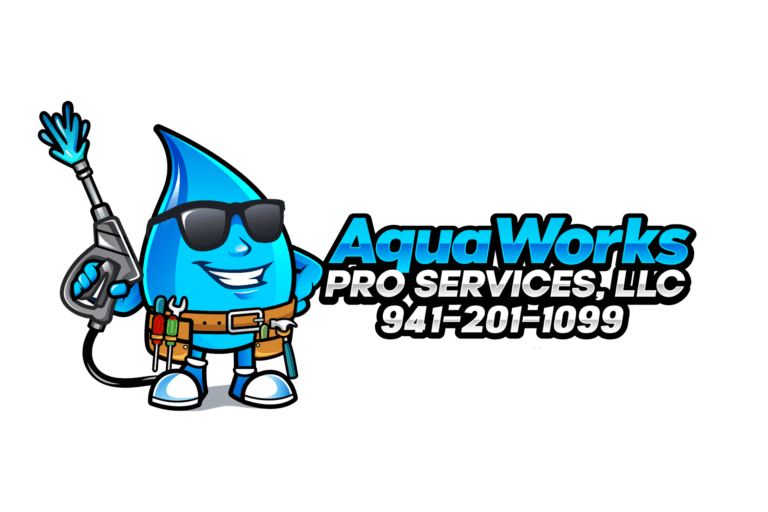Pressure washing is a highly effective and efficient solution to maintaining and enhancing the beauty of residential and commercial properties alike. If you’re unfamiliar with this transformative cleaning process or are simply seeking to gain a deeper understanding of its benefits and applications, you’re in the right place. In this ultimate guide to pressure washing, we’ll cover everything you need to know, from the basics of pressure washing to the various techniques and the perfect surfaces for utilizing this cleaning method to uplift the appearance and functionality of your properties.
At Aquaworks Pro Services, we understand the power and value of a clean, well-maintained exterior that not only elevates the aesthetics but also ensures a safe and healthy environment. This guide will provide comprehensive insight into the world of pressure washing, equipping homeowners and business owners with the essential knowledge to make informed decisions when it comes to their properties’ exterior cleaning and maintenance. Stay with us as we explore the ins and outs of this transformative service that can redefine your property’s appeal and cleanliness.
The Ultimate Guide to Pressure Washing: Elevate Your Property’s Appeal and Cleanliness
I. Understanding Pressure Washing: The Basics
Pressure washing, also known as power washing, is a method of cleaning exterior surfaces using high-pressure water spray. The equipment used in pressure washing typically consists of a motor, pump, hose, and nozzle that work together to generate a powerful stream of water to remove dirt, grime, mold, algae, and other contaminants from various surfaces such as driveways, sidewalks, siding, decks, and fences. The combination of water pressure and a suitable cleaning agent effectively breaks down even the most stubborn stains and organic growth, restoring the appearance and extending the life of your property’s exterior.
II. Different Pressure Washing Techniques
Here are the most common pressure washing techniques used in the industry:
1. Hot Water Pressure Washing: This technique is ideal for removing grease, oil, and other heavy-duty contaminants. By combining high-pressure water with high temperatures, it effectively breaks down and eliminates stubborn stains, killing bacteria and sanitizing surfaces in the process.
2. Cold Water Pressure Washing: Suitable for lighter tasks, cold water pressure washing is perfect for cleaning surfaces such as walkways, patios, decks, and home exteriors without causing any damage. Cold water pressure washing is often more affordable and energy-efficient than hot water pressure washing.
3. Soft Washing: For delicate surfaces, such as wood or vinyl siding, soft washing employs low-pressure water spray coupled with gentle yet powerful cleaning agents that effectively clean without causing damage to the surface. Soft washing is often recommended for surfaces that are susceptible to damage from high-pressure water and is highly effective at removing dirt, mold, mildew, and algae.
4. Commercial Pressure Washing: Commercial pressure washing often involves heavy-duty equipment, specialized techniques, and a focus on efficiency to keep businesses looking clean and presentable. These services can cater to a variety of commercial needs, from retail storefronts and restaurant exteriors to multi-story building facades and parking lots.
III. Ideal Surfaces for Pressure Washing
Pressure washing is versatile and can safely clean a multitude of surfaces, as long as the appropriate technique is employed. Some of the most common surfaces ideal for pressure washing include:
1. Concrete: Driveways, sidewalks, and patios made of concrete are excellent candidates for pressure washing. Concrete is highly porous, making it susceptible to dirt, oil, and other contaminants. Pressure washing can effectively eliminate these stains and restore the surface’s appearance.
2. Brick: Brick walls and paved areas can also benefit from pressure washing, as it easily removes dirt, grime, and even graffiti without damaging the surface. However, special care must be taken to ensure the proper pressure and technique is applied to prevent dislodging or damaging the bricks or mortar.
3. Siding: Vinyl, aluminum, and wood siding can all be effectively cleaned with pressure washing, provided the correct methods and pressure levels are utilized. Soft washing, for instance, is ideal for delicate surfaces like wood, while higher pressure might be suitable for cleaning more resilient materials like vinyl or aluminum siding.
4. Decks and Fences: Wooden decks and fences can accumulate dirt, mold, and mildew over time, and pressure washing can effectively restore their appearance and help prevent premature deterioration. It’s important to use a lower pressure setting and appropriate cleaning solution to avoid damaging the wood’s surface.
5. Roofing: With proper care, pressure washing can help remove algae and moss from roofs, especially those made of asphalt or terra cotta tiles. Soft washing is typically the recommended technique for roof cleaning, as it prevents damage to the roof shingles or tiles while still effectively cleaning the surface.
IV. Key Factors in Choosing a Pressure Washing Service Provider
When selecting a pressure washing service provider for your home or business, it’s crucial to consider the following factors:
1. Experience: A service provider with years of experience in pressure washing will know the nuances of different techniques and can adapt their approach depending on the surface and stains being treated.
2. Equipment: High-quality equipment and a variety of nozzles or attachments showcase the service provider’s commitment to delivering exceptional results and meeting the unique needs of different projects.
3. Eco-Friendly Practices: A professional pressure washing provider should prioritize environmentally-friendly practices, such as using biodegradable cleaning agents and efficient water-saving techniques.
4. Insurance and Licensing: Ensure that the service provider you choose has the proper licensing and insurance to protect both parties in case of property damage or injury incidents.
5. Reviews and Testimonials: Reading customer reviews and checking for testimonials can give you a sense of the quality of work the pressure washing provider delivers, as well as their level of customer satisfaction.
By considering these factors and utilizing this guide, you can confidently navigate the world of pressure washing and make informed decisions when caring for your residential or commercial property’s exterior.
The Lasting Impact of Professional Pressure Washing Services
Pressure washing is an essential maintenance practice for residential and commercial properties, presenting a powerful and transformative solution to clean and protect various surfaces. With a multitude of techniques available, professional pressure washing providers like Aquaworks Pro Services have the experience, equipment, and expertise to tailor their approach to each unique project, ultimately delivering outstanding results.
At Aquaworks Pro Services, we are committed to providing top-notch residential and commercial pressure washing services to our clients, ensuring their properties remain clean, beautiful, and safe. We invite you to explore our range of pressure washing in Florida and discover first-hand the transformative impact our team of professionals can make on your home or business. Contact us today to schedule a consultation or receive a quote – let us help you elevate your property’s appeal and cleanliness with the power of professional pressure washing.


